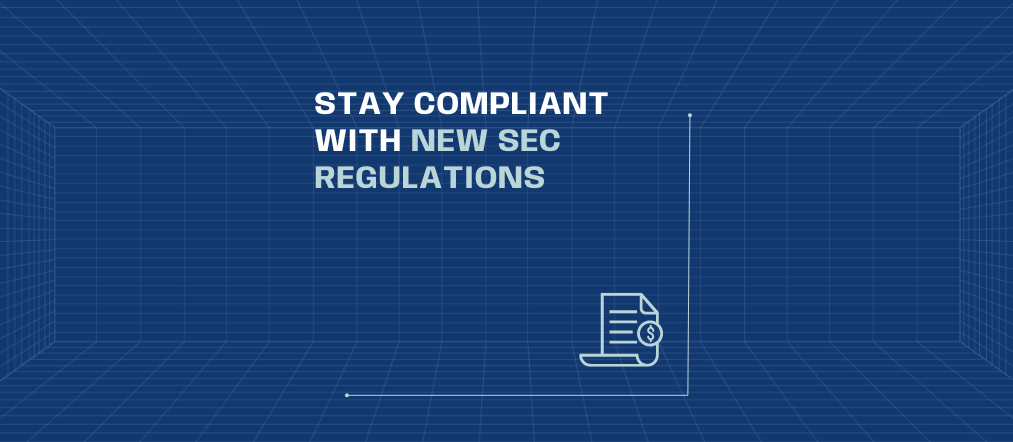The U.S. financial services community is maintaining a wary eye on the Securities and Exchange Commission’s (SEC) pending regulation regarding securitizations. While the SEC has delayed the release of a conflict of interest rule until next spring, this rule has the potential to significantly impede and restrict vital activities across a wide swath of the investor, bank, broker-dealer, corporate issuer, and servicer communities, and all of their affiliates and subsidiaries.
New Rules: The SEC’s Proposed Prohibition
The SEC is considering new securitization regulations that could have a significant impact on securitizations in both public and private markets in the U.S. However, the Structured Finance Association (SFA) has recently spoken out against these regulations, citing numerous flaws in the proposed Prohibition Against Conflicts of Interest in Certain Securitizations.
The proposed act would prohibit any transaction that could result in a material conflict of interest between the securitization participant and the investor in an ABS, subject to certain exceptions. In particular, the SFA argues that the rule could ultimately curtail the healthy functioning of the ABS and broader financial markets. It remains to be seen how the SEC will proceed, and what implications this could have for the financial industry as a whole.
The new SEC regulations, which would be an addition to Dodd-Frank, would likely impinge on financial markets in a way that is “not what congress intended”. The Dodd-Frank Act was enacted in 2010 in response to the 2008 financial crisis with the aim of promoting financial stability and protecting consumers from abusive practices in the financial industry.
Most regulations around securitizations in the U.S. stem from this legislation, including rules around risk retention, disclosure requirements, and credit rating agency reform. Since its passage, the act has been subject to various additions and amendments, including the Economic Growth, Regulatory Relief, and Consumer Protection Act of 2018. These changes have sought to address concerns around the impact of the original act on smaller banks and other financial institutions, as well as to further strengthen consumer protections and promote financial stability. Overall, the Dodd-Frank Act remains a vital piece of financial regulation in the U.S., with significant implications for the securitization market and beyond.
An Aggressive Stance on Conflict of Interest and The Impact on Asset-backed Securities
If this new legislation passes, it would have significant implications for securitization participants and investors in asset-backed securities (ABS). The proposed prohibition would include transactions such as short-selling the ABS or purchasing a credit default swap or other credit derivatives that would result in payments to the securitization participant upon the occurrence of specified credit events in respect of the ABS. The goal of this legislation is to promote fair and transparent practices, but if passed, this act could have significant unintended consequences for the conduct of securitization transactions moving forward.
Complying with new securitization regulations can be a challenging task, but industry-leading portfolio management software can offer the structured finance community some much-needed peace of mind. Regulations governing securitization are constantly evolving, making it difficult for institutions to keep up with the latest requirements. Additionally, significant and regular reporting is required for most securitization transactions.
Lack of collaboration software and permissioning issues can engender difficulty in sharing reporting across different departments or organizations while managing all the disparate data that needs to be pulled into reporting can be a significant challenge in itself. All of these factors combined can make complying with securitization regulations a complex and time-consuming process.
Stay Compliant With New SEC Securitization Regulation With Ease
For all financial institutions, but particularly large-scale investors who work across multiple structured finance deals, securitization software is an essential tool for managing securitization transactions and the ever-evolving regulations that accompany them.
With automated reporting capabilities that can be tailored to regulatory and compliance needs, and collaboration features, portfolio management platforms make it simple to share reports with stakeholders and ensure that the right people have access to the right information. By connecting to an institution’s enterprise-wide tech stack, securitization technology can provide greater visibility into risk and portfolio management, as well as increase transparency into securitization transactions for all parties involved. This will help organizations streamline securitization transactions and improve compliance in the ever-evolving regulatory landscape.
Visit T-REX for Structured Finance to learn more about how securitization software can help you enhance compliance and stay up to date with the evolving regulatory landscape in asset-backed securities.
